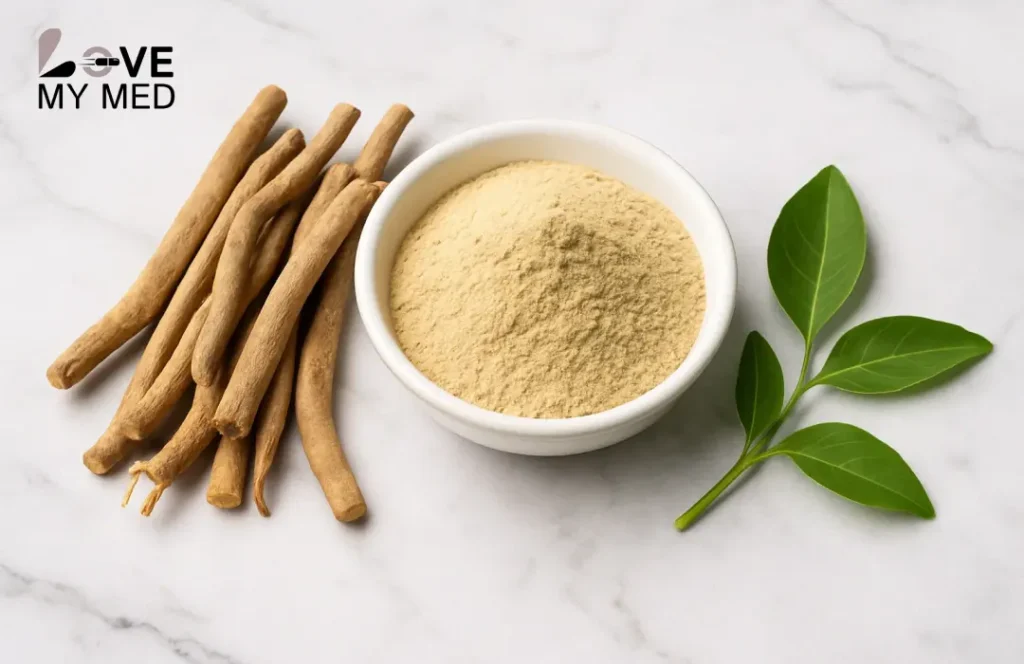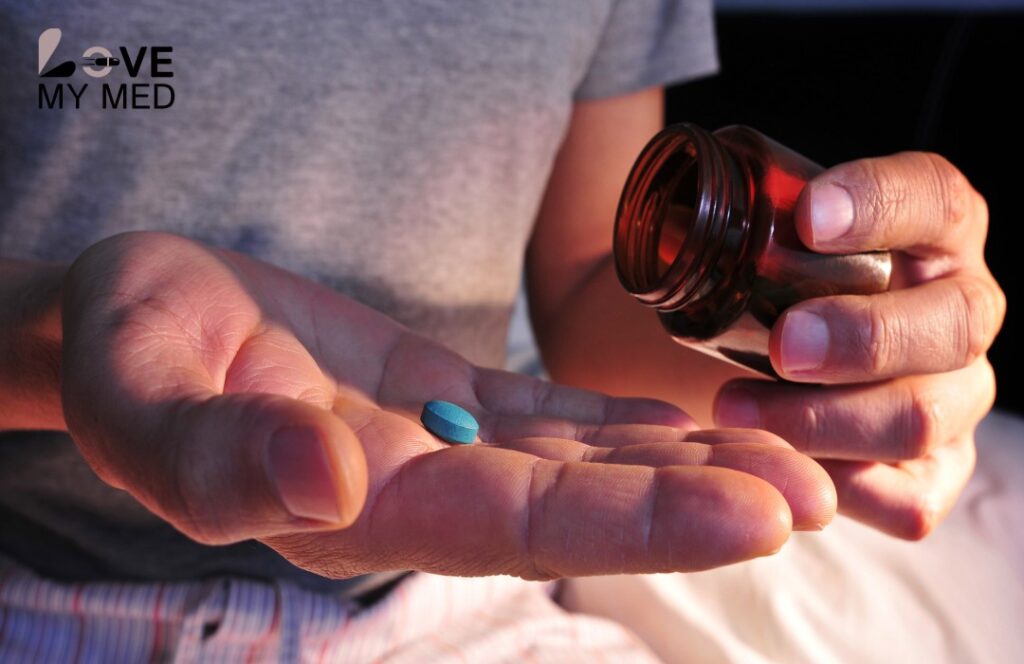Ashwagandha vs. Melatonin: Which Is Better for Sleep?
Introduction: Struggling with Sleep?
It’s a common experience for many people – lying in bed late at night, staring at the ceiling, and wondering why sleep feels so difficult to achieve. Whether it’s due to stress, long work hours, irregular schedules, or simply an overactive mind, falling asleep can sometimes feel like a battle. In recent years, natural sleep aids have gained popularity as people look for safer, non-addictive ways to improve their sleep quality. Among the most talked-about options are Ashwagandha and Melatonin.
Key Takeaways: Ashwagandha vs. Melatonin
- Melatonin regulates the sleep-wake cycle by signaling your body it’s time to sleep. It’s best for circadian rhythm issues like jet lag or shift work.
- Ashwagandha is an adaptogen that reduces stress and cortisol, indirectly improving sleep quality—especially helpful for stress-related insomnia.
- Use cases differ: Use melatonin for quick sleep onset, and ashwagandha for long-term stress relief and sleep improvement.
- Combining both may offer dual benefits: Ashwagandha helps calm the mind, while melatonin supports sleep signaling; together they promote restorative sleep.
- Dosage & safety matters: Typical dosing — Ashwagandha: 300–600 mg/day; Melatonin: start 0.5–3 mg, 30–60 min before bed. Always consult a healthcare provider for personalized guidance.
What Is Ashwagandha?
Both of these supplements are widely used, but they work in very different ways. Ashwagandha, an ancient Ayurvedic herb, is known for its adaptogenic properties, helping the body manage stress and promote relaxation, which naturally supports better sleep. On the other hand, Melatonin is a hormone that regulates the body’s sleep-wake cycle, often used as a quick fix for insomnia or circadian rhythm disruptions.
This article will explore how Ashwagandha and Melatonin work, their unique benefits, and possible side effects. By comparing these two natural remedies, you’ll have a clearer understanding of which one may be better suited for your personal sleep needs. Let’s dive deeper into the world of natural sleep solutions!
The Ancient Herb for Stress Relief
It is an herb that has been in use for hundreds and thousands of years in traditional Ayurvedic medicine. It has been referred to as adaptogenic, which means it helps the body cope with stress. Although it is not necessarily a sleeping aid, it has its effects via lowering cortisol levels, which is the stress-causing hormone.
How Ashwagandha Helps You Sleep
It indirectly leads to better sleep through less stress and anxiety. It induces a feeling of relaxation that may help find it easier to relax before going to bed. It may be especially useful when you want to fall asleep, but stress is standing in your way.
Extra Health Benefits
It has been identified to increase energy levels, enhance brain power, and even improve sexual health, alongside improvement of sleeping patterns. To illustrate, it has been found that Ashwagandha may assist in solving erectile dysfunction because it reduces stress, which in turn is associated with sexual problems such as erectile dysfunction.
What Is Melatonin?
The Sleep Hormone
Melatonin is a naturally occurring body hormone that is manufactured by the body under darkness. It assists in managing your circadian rhythm, or internal clock, that distinguishes when your body wants you to sleep and when to wake up.
How Melatonin Works for Sleep
When used as a supplement, Melatonin sends out a direct message to your brain to sleep, and as such, it is the ideal remedy for individuals with bedtime difficulties. This renders Melatonin especially helpful in such problems as jet lag or shift work.
Potential Drawbacks of Melatonin
Although Melatonin is considered relatively risk-free, it is important to take note of its side effects, such as morning drowsiness or lively dreams. These side effects are mild in the majority of people, yet they can disrupt their normal activities.
Ashwagandha vs. Melatonin: Quick Comparison
| Aspect | Ashwagandha | Melatonin |
|---|---|---|
| Type | Adaptogenic herb (natural stress reliever) | Hormone supplement that regulates sleep-wake cycle |
| Primary Benefit | Reduces stress, lowers cortisol, supports relaxation | Helps you fall asleep faster and reset circadian rhythm |
| Best For | Stress-related insomnia, anxiety, long-term sleep quality | Jet lag, shift work, trouble falling asleep quickly |
| Onset of Action | Gradual effects over days to weeks | Works within 30–60 minutes of taking |
| Dosage | 300–600 mg/day (capsule or powder) | 0.5–3 mg before bedtime |
| Side Effects | Mild drowsiness, digestive issues (rare) | Drowsiness, vivid dreams, morning grogginess (if overdosed) |
| Long-Term Use | Generally safe for regular use under guidance | Not recommended for long-term daily use |
Note: Always consult a healthcare professional before starting supplements for sleep or stress.
Ashwagandha vs. Melatonin: A Direct Comparison
How They Work
- Ashwagandha is targeted at decreasing stress levels and anxiety, giving a general feeling of relaxation and calm. Affective feeling may take days or weeks
- Melatonin is effective instantly, making you fall asleep quicker by telling your brain that it is time to sleep.
Which One Should You Choose?
Ashwagandha may be the best option in case your sleeping problems are largely caused by stress. It is also gradual in naturalness with the assistance of lowering anxiety, so you can easily slip into sleep. Nevertheless, Melatonin can be more effective in cases when you have difficulties falling asleep at a certain time, particularly when the disruption of circadian rhythms is involved.
Effectiveness in the Long-Term
- Ashwagandha is a holistic long-term approach that works to address one of the major sources of sleep disturbances, i.e., stress.
- Melatonin, however, is not always a long-term resolution to continued sleep difficulty, despite being effective in the short-term to facilitate sleep onset.
Combining Ashwagandha and Melatonin: A Synergistic Approach?
Can You Use Both?
Yes, combining Ashwagandha and Melatonin may provide enhanced sleep benefits. Melatonin can help you fall asleep faster, while Ashwagandha reduces stress and supports deeper, uninterrupted rest. When used together, they may act as a natural, holistic solution for improved sleep quality. Just like Cenforce 200 works effectively to address specific men’s health concerns by targeting the root cause, Ashwagandha and Melatonin complement each other to deliver a complete approach to better sleep. However, it’s always wise to consult a healthcare provider before combining supplements or medications.
Dosage and Safety Considerations
Dosage and safety are crucial when it comes to any treatment—whether you are taking natural supplements or prescription medications. For example, with men’s health medicines like Fildena 150 or Vidalista 60, following the prescribed dosage is essential to avoid unwanted side effects and ensure the best results. Similarly, with supplements such as Ashwagandha or Melatonin, taking the correct dose at the right time helps maximize benefits without causing drowsiness or interactions. Always consult a healthcare professional before starting, adjusting, or combining treatments. This ensures safe use and tailored results based on your health needs.
Sleep and Erectile Dysfunction: Can Better Sleep Improve Sexual Health?
The Connection Between Sleep and Sexual Health
One of the main factors concerning the general well-being, sexual health is no exception. Erectile dysfunction has been associated with inadequate sleep. To improve sleep, both Ashwagandha and Melatonin may be considered, although Ashwagandha will be a step ahead in addressing the contributing factor to erectile dysfunction, namely stress.
How Ashwagandha Helps with Erectile Dysfunction
It has the potential to enhance sexual performance due to the control of cortisol levels, and it manages stress. It is among the more natural medications to address erectile dysfunction. Research has identified that it can enhance sexual health by normalizing hormones as well as reducing anxiety.
How Melatonin Affects Erectile Function
Although Melatonin does not have a direct influence on erectile capacity, with enhanced sleep, the sexual performance can be boosted. A regular night of good sleep can assist in balancing hormones such as testosterone that are involved in sexual health.
Frequently Asked Questions
1. Can Ashwagandha Replace Melatonin for Sleep?
Ashwagandha can be treated as an alternative to Melatonin because it helps one sleep by decreasing stress. In case your main problem is anxiety or a raised level of cortisol, Ashwagandha would be more effective. Nevertheless, you may find Melatonin more effective in case you experience difficulty falling asleep caused by the problems of circadian rhythm.
2. Is It Safe to Combine Ashwagandha with Melatonin?
Yes, Ashwagandha can be safely combined with Melatonin, except in the cases of individuals with symptoms of stress and sleeping difficulties. Begin use with small doses and approach a healthcare giver in case you have any particular questions about erectile dysfunction or other health disorders.
3. How Long Should I Take Ashwagandha or Melatonin?
In the case of Ashwagandha, the results will be slow. The majority of individuals begin to feel the difference in a couple of weeks. Nevertheless, one can safely take melatonin only when needed, especially in cases of short-term and other sleeping problems such as jet lag or common insomnia.
Conclusion: Which Is Best for You?
Choosing Ashwagandha or Melatonin, focus on the primary reason for your sleeping disturbances. In case stress is one of the key parameters, Ashwagandha may be more appropriate. Melatonin can be an ideal choice where circadian rhythm disturbances interfere with your ability to fall asleep.
When used together, they can provide synergistic effects in some instances, so that you will sleep quickly and stay asleep longer. All that you have to remember is to discuss the changes with a healthcare expert, particularly when you are worried about erectile dysfunction or other health conditions.





